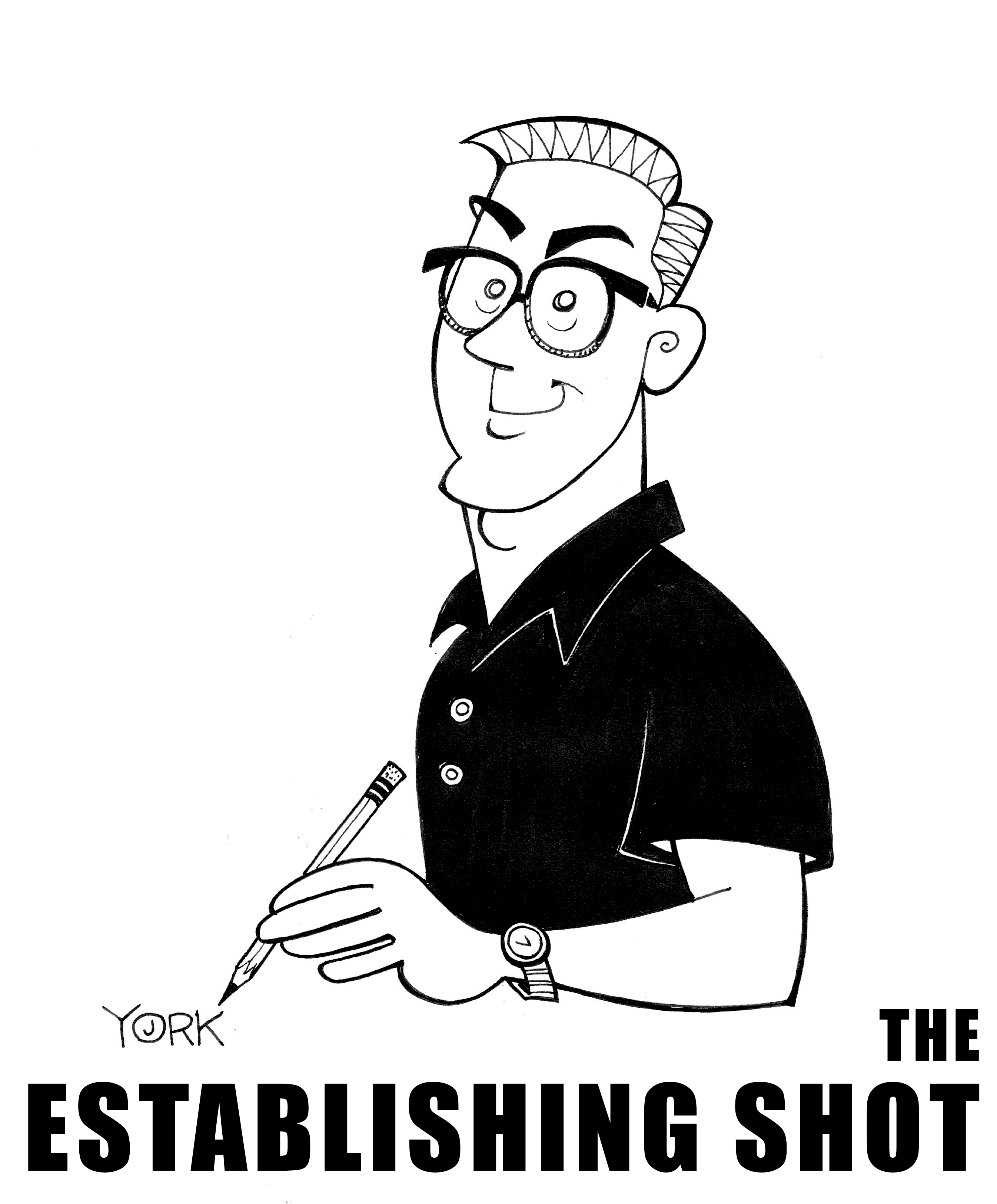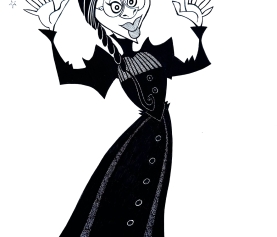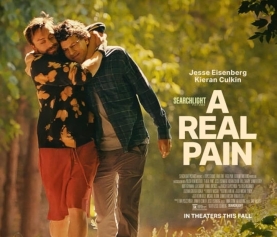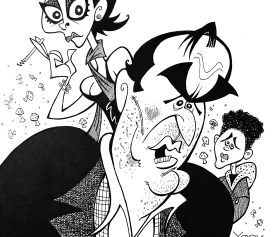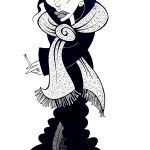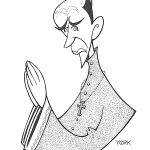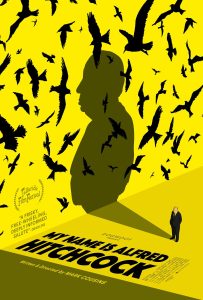
It’s one thing to examine the films of Alfred Hitchcock, often regarded as the greatest movie director ever, or at least the master of suspense, and it’s another thing to have him narrate a documentary even though he technically cannot since he’s been dead since 1980. Still, that is what documentarian Mark Cousins has done with his latest film MY NAME IS ALFRED HITCHCOCK. It’s a clever and insightful examination of many of the tropes and characteristics that made up the master’s work, but some may raise eyebrows at Cousins’ decision to put words in Hitchcock’s mouth in describing it all via a modern script by Cousins, let alone his casting of actor Alistair McGowan to perform a superb, albeit cringy take on Hitch in the voiceover.
I know I did.
That’s not to say that MY NAME IS ALFRED HITCHCOCK isn’t a fun film with all kinds of clever revelations about Hitch’s style and storytelling prowess. All the narrative details, the technical aspects, and the aesthetics of Hitch are put under the microscope by Cousins and while many of such tropes will be obvious to even the most casual of fans, the doc nevertheless finds many examples in the corners of scenes of films that would have been lost on most.
For example, Cousins, writing for Hitch, has McGowan imitating the master with aplomb while describing how the audience was fooled into thinking that ROPE from 1948 had only those cuts every 10 minutes when the camera needed to reload. Not true. Hitchcock included a cutaway about two-thirds of the way into the film of James Stewart’s character reacting to the characters played by John Dall and Farley Granger as he realizes that they are murderers. Insights like that are exceptionally worthy here, even if it’s a bit weird to hear “Hitch” over-explain it all.
Yes, you will get used to it 10 minutes in, and maybe even forget about it as the doc gets cooking, going deep into various themes that distinguish Hitch’s work, amongst them loneliness, desire, guilt, and escape. Cousins used the effect when he had actor Jack Klaff speak as the deceased Orson Welles for the documentary entitled THE EYES OF ORSON WELLES in 2018. Cousins doesn’t skimp on the cinematic examples either as there are high-quality clips of almost all Hitch’s films including his more obscure early works done in Britain before coming to America.
What lessens all of Cousins’ efforts is the lack of decent photos to fill the screen. Here, Cousins comes up short as he doesn’t have nearly enough pics of Hitchcock’s life to sustain the 120-minute run time. He overuses several photos that it feels almost amateurish as if this is a video term paper for a senior film student. It is not a good look for a film about one of the directors whose camerawork was always revolutionary.
Still, I very much enjoyed all that Cousins had to say about many of the highlights from Hitch’s films: Ray Milland’s watch stopping just as he needs to know the precise time to carry out the film’s title in DIAL M FOR MURDER (1954). It was also great to see the difficult murder scene from 1966’s TORN CURTAIN given a thorough examination. I was especially tickled by Cousin’s many thoughts regarding FRENZY, one of my favorites of Hitchcock’s. Hitchcock bios have been done plenty, but this one stands amongst the best. The ruse of Hitchcock relating his thoughts about all such scenes however can’t help but be controversial, and quite far from essential, especially since Hitchcock always ensured in his films that we understood exactly what was occurring, often with nary a word.
If you’re a Hitchcock fan, and who isn’t, you can catch the documentary that was made in 2022 but has now just been released in select US theaters.
